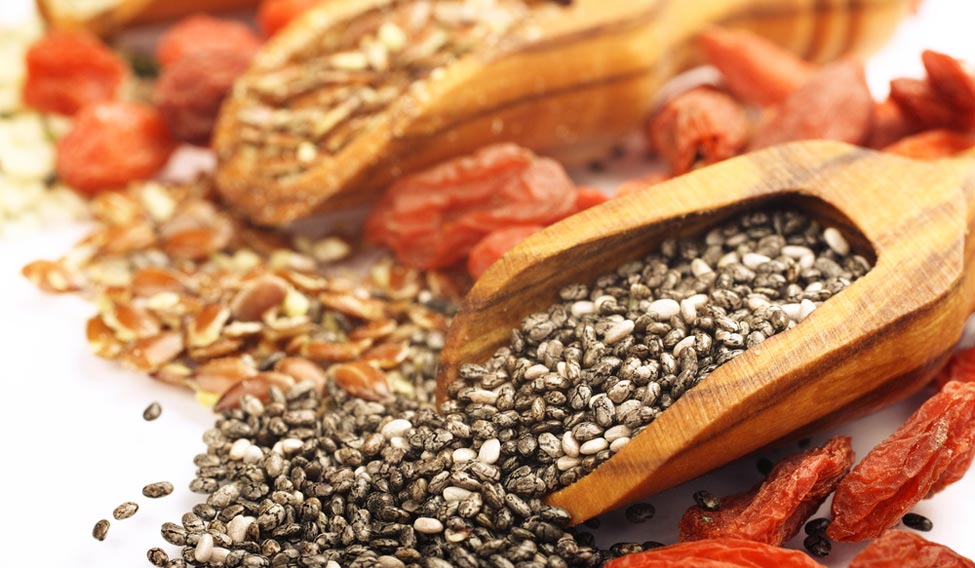Good things come in small packages, and so do some of the best sources of nutrients. Seeds often are an undervalued afterthought—a casual topping on biscuits, bread, buns and Indian sweets—or are taken for granted as regular ingredients for tempering, especially in Indian cuisine. Despite their regular presence in our kitchens, we overlook the nutritional value seeds can add to our daily diet. After all, aren't tiny seeds packed with nutrients that support the growth of a new plant?
"Seeds are those dot-sized miracles of nature that are not only highly efficient at keeping our mind and body healthy but also are great natural sources of vitamins, antioxidants, fibre, protein and much more," says Dimple Mirchandani, founder and managing director of Holistic Nutrition, a Delhi-based healing and fitness startup.
Including seeds in the diet does not call for advance planning or following dedicated recipes. They can be had in many ways—raw, sprouted or roasted. Convenient to store and easy to carry, salted and roasted seeds make an excellent on-the-go snack, or just add a handful of raw or sprouted seeds to your salad to boost nutrition. "You can simply soak them in water overnight and have them the next day, or add them to salads, smoothies or to protein shakes, or sprinkle some over the yoghurt. You can also use their oils for cooking," says the 27-year-old health care consultant.
Here are seven nutritious seeds Mirchandani suggests you add to your diet for a healthy body and mind:
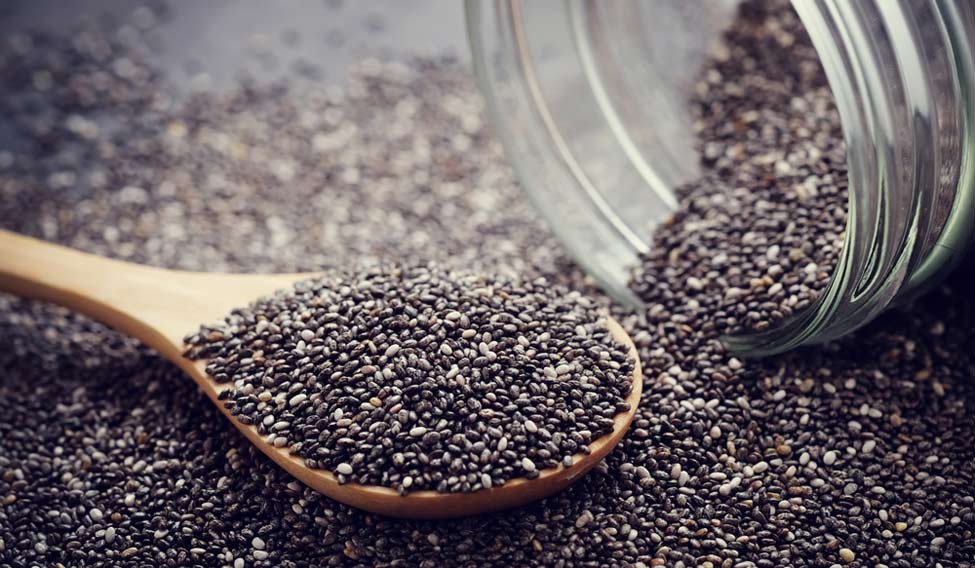 Chia seeds
Chia seeds
1. Chia seeds
Perhaps the most popular super seed, chia seeds are a rich source of calcium, magnesium, omega-3 fatty acids, protein and soluble fibre. "My personal favourite, I call them (chia seeds) vegetarian soldiers," says Mirchandani. She explains that the name 'chia' comes from an ancient Mayan word for strength.
Calcium plays an important role in maintaining bone and dental health, magnesium regulates the levels of calcium, sodium and potassium in the body. The omega-3s promote heart health by lowering elevated triglyceride (a type of blood fat) levels and reducing blood pressure in people living with hypertension. Soluble fibre in chia seeds makes it easy to digest, yet keeps you full for a long time.
How to use them: Chia seeds are as versatile as an ingredient can get. There is no fixed recipe to include chia seeds in your diet. Ground chia seeds can be used to thicken smoothies, juices and soups, or dry chia seeds can be added whole to yoghurt, oatmeal or even cornflakes. Another easy way to have chia seeds is by sprinkling a handful of it over a bowl of salad. Chia seeds, when added to any wet dish such as overnight oats or a smoothie or a shake, swell into gel-like globules while still retaining a slight crunch.
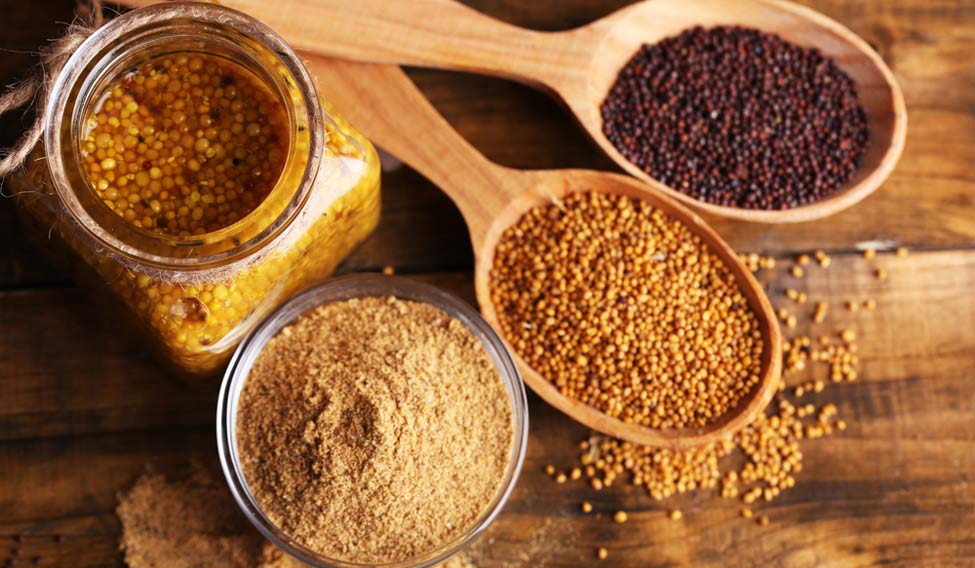 Mustard seeds, powder and sauce
Mustard seeds, powder and sauce
2. Mustard seeds
Mustard is not only one of the oldest condiments known to man but is also among the most widely used. Historically, it is believed, that mustard was regularly consumed by Egyptians who often ate it raw with meat for an enhanced peppery taste, and ancient Greeks and Romans valued it for its medicinal properties. Pythagoras recommended mustard to cure scorpion bites and Hippocrates turned to mustard as a miracle remedy to sooth pains and aches.
For us Indians, mustard is an integral part of cooking. We have it in all forms—seeds, greens and oil. Though many Indian recipes celebrate mustard as the base flavour, it is mostly used for seasoning. Despite being a basic necessity in Indian kitchens, not many are aware of the nutritional value of mustard seeds. These seeds are an excellent source of selenium, an essential trace element which is also a powerful antioxidant. Besides supporting thyroid hormones synthesis and boosting overall reproductive health in both men and women, selenium is also believed to possess anti-cancer properties. The seeds are also beneficial in controlling the severity of asthma and curing rheumatoid, arthritic, and muscle pains.
Mustard seeds are also a rich source of omega-3 fatty acids, manganese and protein. "Mustard seeds contain 7 grams of protein per ounce," says Mirchandani.
How to use them: While the intense bitter-fiery taste of mustard seeds makes it difficult to be had raw or sprouted, it can be included in the diet in other forms such as whole seeds in rice and curries, mustard sauce with meat and bread, or as the oil for cooking. Also, crushed mustard seeds are widely used in making pickles and brine all over the world.
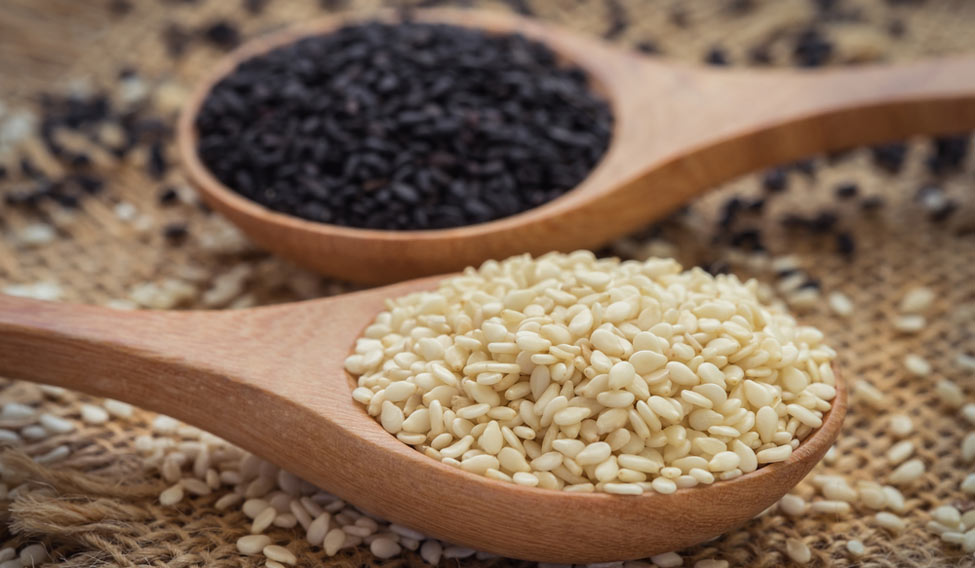 White sesame and black sesame seeds
White sesame and black sesame seeds
3. Sesame seeds
Sesame seeds are another popularly consumed seed in all parts of India. Often seen on top of bread and buns, sesame seed is also used in making many types of snacks and sweets. One of the oldest oilseed crops in the world, sesame seeds have been lending rich nutty flavour and oodles of health benefits to many Asian dishes. Sesame seeds come in two varieties—hulls removed white seeds and black ones that have their hulls intact.
Sesame seeds are a rich source of vitamins, minerals, natural oils, fibre and organic compounds such as calcium, iron, magnesium, phosphorous, manganese, copper and zinc. "Sesame seeds help in maintaining blood sugar level, lowering blood pressure, building strong bones, curing sleep disorders, improving digestion and eliminating depression and stress," says Mirchandani.
How to use them: Like nuts, sesame seeds add crunch to food making it a perfect add on for cereals and oatmeals, or just sprinkle it over a bowl of salad for a creamy, nutty flavour with each bite. It can be mixed into bread and buns, or be used as topping on Indian bread such as naan and rotis. In Mediterranean cuisine, tahini or the sesame seed paste is a staple dip often served with vegetable and pulse-based dishes. Also, powdered sesame seeds can be added to most smoothie recipes.
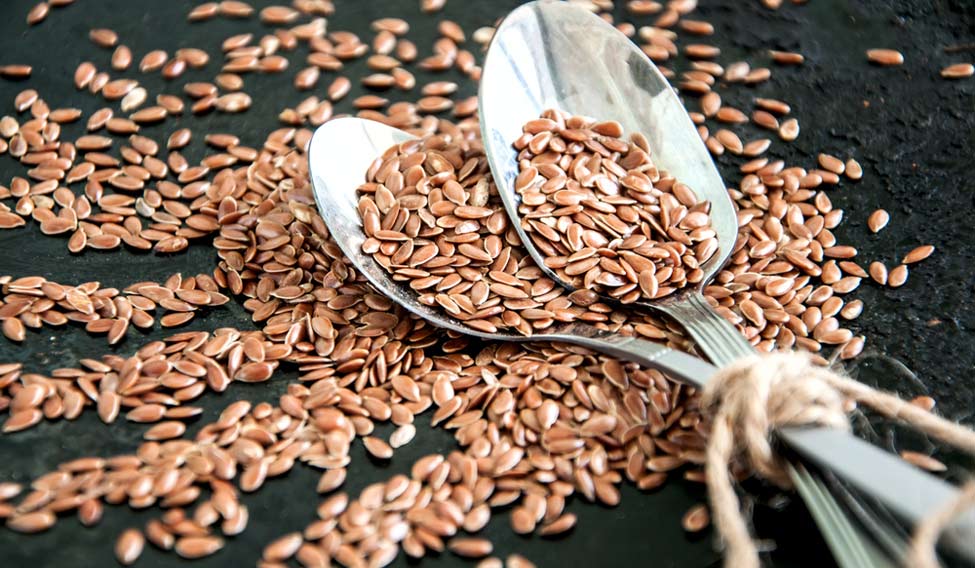 Flax seeds
Flax seeds
4. Flax seeds
Not many foods can compete with flax seeds, also known as common flax or linseeds, in terms of health benefits. These small, shiny, brown or golden-coloured seeds are packed with micronutrients that are essential for humans. "They (flax seeds) are one of the richest source of omega-3 fatty acids which play a key role in maintaining normal cholesterol levels," says Mirchandani.
Flax seeds are hailed as the richest plant-source of omega-3 fatty acids, specifically alpha-linolenic acid (ALA) which along with dietary fibre and lignans ( the naturally occurring form of the female hormone oestrogen) could help in boosting heart health by lowering cholesterol levels. Each tablespoon of ground flax seed is believed to contain about 1.8 grams of plant omega-3s.
It also helps in lowering blood pressure. Being a rich source of both soluble and insoluble fibre, flax seeds aid in digestion, prevent constipation and improve overall functioning of the digestive system. Lignans found in flax seeds help improve prostate health. It is known to prevent prostate cancer and reduces the risk of colon cancer.
Also, flax seeds are a rich source of vitamins and minerals such as magnesium, vitamin B1, copper, phosphorus, and molybdenum.
How to use them: It is very important to consume flax seeds the right way to gain maximum benefits from it. Flax seeds, if not chewed properly may not be properly digested by the body and be eliminated from the system. If you prefer eating it raw and whole, then it is better to soak it in water for sometime before munching on it. Flax seeds are most beneficial when had in raw ground form. Powdered flax seeds can be mixed into bread, cookies and cakes. It also makes an excellent ingredient for homemade granola bars. You could also sprinkle some powdered flax seeds over salad or add it to soups, shakes and smoothies.
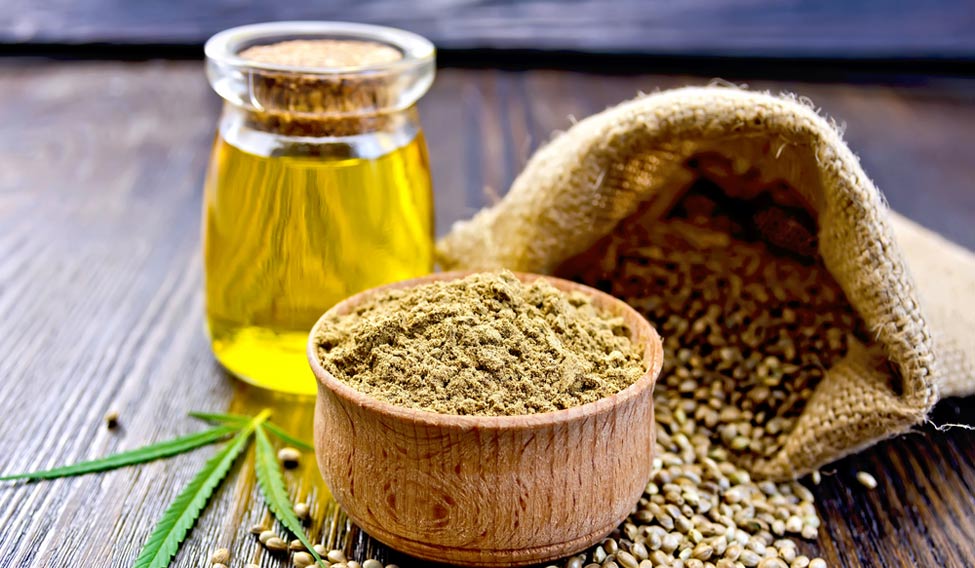 Hemp flour, seed and oil
Hemp flour, seed and oil
5: Hemp seeds
The fact that hemp seeds, also known as hemp hearts, are one of the best sources of plant protein and are highly nutritious is often overshadowed by its botanical relationship with another variety of the Cannabis species: marijuana. Over years, both plants have been put under the same category as they both contain naturally occurring tetrahydrocannabinol (THC), a psychoactive compound that can cause a euphoric high. However, hemp seeds contain very small amount of THC—about 0.3-1.5 per cent compared to 5-10 per cent or more in marijuana—an amount not enough to cause a high. Hemp seeds are not only safe to consume, but are readily available in most gourmet stores (online and offline).
"Most loved by sports people, hemp seeds are rich in protein and provide all essential amino-acids," says Mirchandani. These small, brown seeds with a slightly nutty flavour are considered to be a complete source of protein as it contains all 20 known amino acids (building blocks of protein), including nine essential amino acids that cannot be produced by the body and must come from food. In addition, hemp seeds are a rich source of magnesium, iron, zinc, major B vitamins except Vitamin B 12, Vitamin E, omega-3 and omega-6 fatty acids and fibre.
How to use them: Being rich in protein, hemp seeds are sensitive to heat and light. Therefore, it is very important to store hemp seeds in a cool and dark place, or in a refrigerator. It is very easy to include hemp seeds in your diet. The nutty flavour profile of hemp seeds makes them an excellent means to add crunch to your food while boosting the overall nutritional value. Just sprinkle some shelled and raw hemp seeds to salads, yoghurts, and oatmeal for a quick, crunchy fix. You could also grind it with smoothies for a thick, protein-rich drink. If you choose to include hemp seed oil in your diet then it is best to use it as a finishing oil instead of cooking oil as heat can change its nutrition profile.




